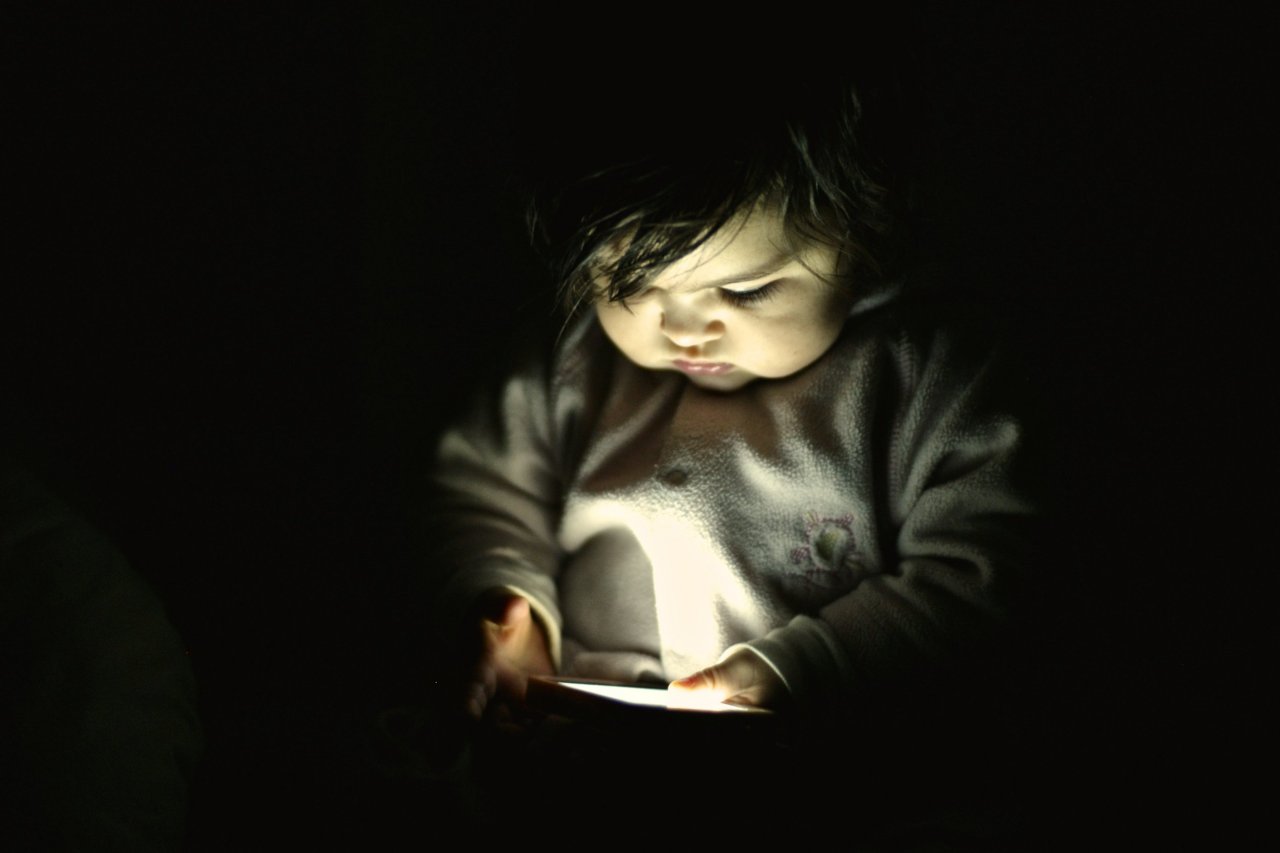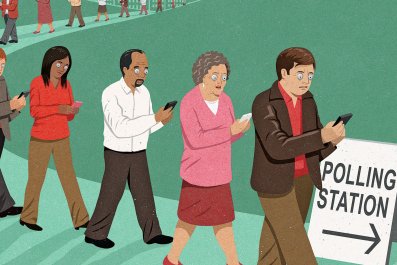Staring dumbly at a smartphone isn't just for grownups anymore—even toddlers are in on the games. But according to a new study, such screen time could cause language delays in children. The research confirms what many of us already know: smartphones don't always make us so smart.
The study, which will be presented at the 2017 Pediatric Academic Societies Meeting, examined the link between handheld device screen time and language development among 894 children between the ages of 6 months and 2 years.
The researchers, of the University of Toronto and the Hospital for Sick Children, also based in Toronto, tracked screen time and communication skills. For four years, they recorded how much time the children spent looking at smartphone screens, as reported by the parents. They also assessed language development, using a standard measure called the Infant Toddler Checklist, or ITC, which includes the ages at which children are expected to reach certain communication milestones.
Most parents said their children had no screen time. But among those who admitted that their children did play with smartphones, the average exposure time was 28 minutes per day. In total, 20 percent of the children were spending nearly half an hour per day staring at a tiny touch screen by the time they were 18 months old.
And those children had some problems. That half-hour of screen time was associated with a 49 percent increase in expressive speech delays. In simpler terms: they started talking later. The researchers saw no delays in gestures, body language or social interactions, but the ability to form sounds into words came slower among the phone holders. Those children were at or below the 10th percentile for speech at 18 months.
Catherine Birken, staff pediatrician at The Hospital for Sick Children and senior author of the study, acknowledges several limitations of the work. First and foremost, the study describes only a correlation between device time and language development, and as all web-reading parents should know, correlation does not imply causation. "This study is a first step that requires replication," says Birken, "and other study designs to examine causation."
Reason to Resist Toddler Smartphone Use
Kristen Copeland, a pediatrician at Cincinatti Children's Hospital Medical Center, who was not involved with this research, says studies like this help correct the mistaken belief many parents hold that children learn from screens. "In fact, all evidence points to the contrary, especially for children under 30 months," says Copeland. She notes that the speech delays observed in this study could also be due to parents replacing more language-enriching activities with devices.
Also, the researchers did not observe what the children were doing with their smartphones, or whether they were using them alone or with their parents. So there is no knowing, based on these data, if the activity makes a difference in the risk of language delays. This information is crucial for determining whether the link is causal, says Birken, who says more studies on handheld screen devices, including their potential benefits, are needed. Copeland acknowledges what we're up against. "Screens are compelling," she says. "So it takes willpower and intention to not expose children or ourselves to them."
SaveSave

















